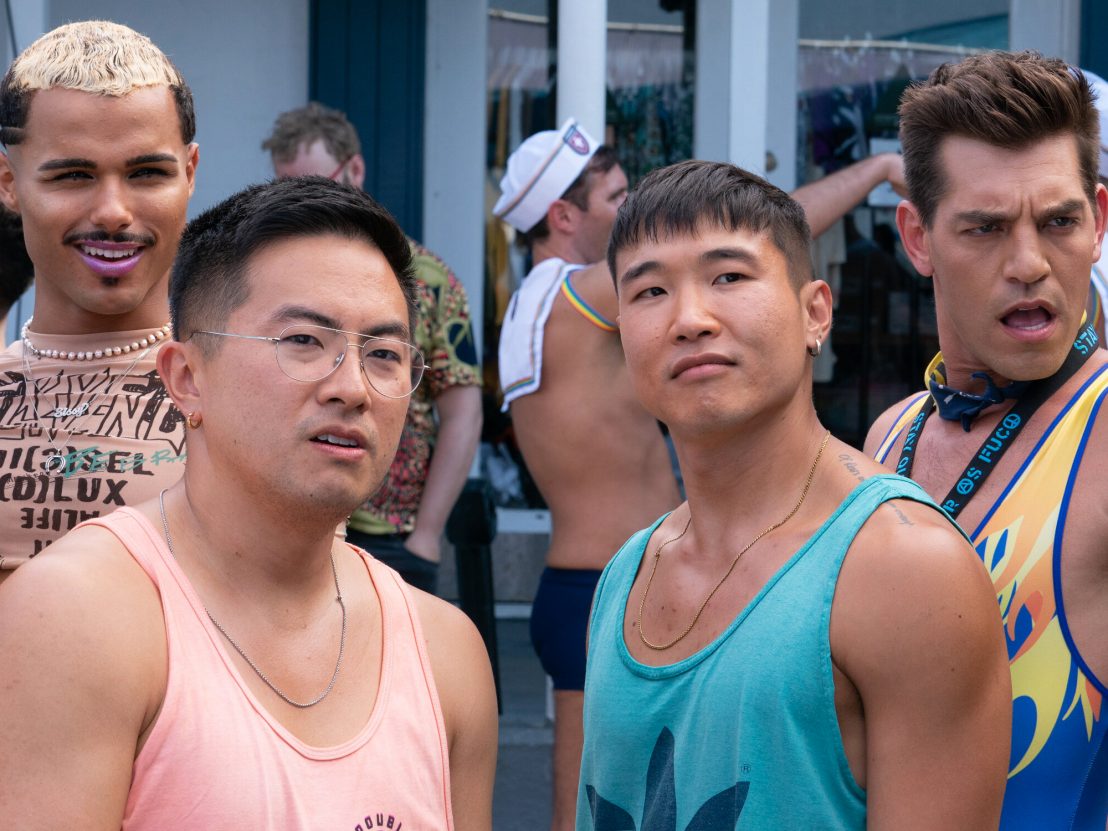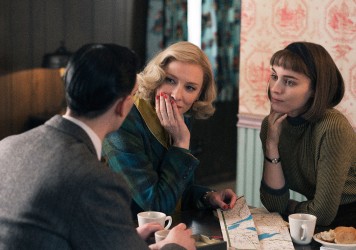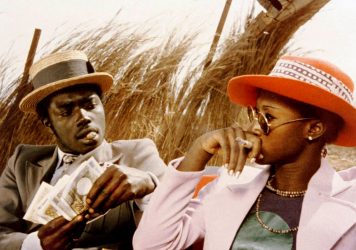
In a new series, we’re celebrating the films we loved that aren’t likely to dominate the awards race. Over the new few weeks, our writers make passionate arguments for the performances and craft that stood out to them, from blockbusters to arthouse and everything in between.
In Hollywood, everything old is new again, so the current Regency resurgence is right on schedule. Thankfully, not everything is a Mr Darcy rinse and repeat. Joel Kim Booster’s adaptation of Pride and Prejudice switches 19th-century England and the Netherfield Ball for gay holiday destination Fire Island and a skin-baring underwear party at the Ice Palace. More than 200 years separates the two, but the bones of the relationships and class structure remain.
Austenmania and contemporary adaptations of classic texts studied at high school ran parallel as two defining movie trends of the ‘90s, converging with Amy Heckerling’s Clueless. The latter is the benchmark for a modern take on Jane Austen and teen movies. Clueless (a riff on Austen’s Emma) debuted in the summer of 1995, whereas Ang Lee’s more traditional Austen depiction landed in December of that year. It is no coincidence that Lee’s Sense and Sensibility premiered amid award season, with Emma Thompson going on to win Best Adapted Screenplay at the Oscars. Heckerling’s defining Austenverse entry was unsurprisingly shut out. More than 25 years later, Booster has experienced the same fate, but this doesn’t mean this screenplay isn’t worthy of being considered alongside more prestige dramas.
Even if you haven’t read a single word of Austen’s novel, you have likely encountered a version of, or homage to, this enduring story. Hit BBC mini-series starring Colin Firth and Jennifer Ehle, Joe Wright’s (Oscar nominated) 2007 movie, Bridget Jones’s Diary or even Pride and Prejudice and Zombies are just a few options from the last three decades. Parameters impacting marriage and social status have evolved, but the fundamentals of class and dating rules aren’t entirely separate from the past. Booster has tapped into the text’s core while offering a fresh take on the familiar.
The writer-actor took Pride & Prejudice as his beach read when venturing to Fire Island for the first time several years ago, which was a transformative experience in a space carved out by gay people for gay people. He couldn’t help but notice that class lines and social politics across the Pines and Cherry Grove weren’t all that different from what Austen’s heroine experiences – abs are now a valuable commodity, but financial wealth still reigns.
Booster’s journey from reading Pride and Prejudice on holiday to adapting it for the big screen takes a very 21st journey, beginning with an essay on a Penguin blog comparing Austen’s world to the summer destination queer hotspot. Initially, the gay spin on the Bennet sisters picked up steam when Quibi (RIP) greenlit the project. Quibi’s demise was cinema’s gain as rather than micro-episodes, Booster expanded the screenplay to a feature-length film.

Personal experience is baked into the script without veering too far from the outlines of characters like snob Caroline Bingley and her adorable brother Charles. Recognisable characteristics emphasise how prescient the source material is when nodding to archetypes of the holidaying gay men on the island. Booster’s Darcy is well-drawn in Conrad Ricamora’s Will, but the modern-day analogue to the Bennet sisters makes this movie sing — in some cases, quite literally. Pop culture references double as a friendship language, giving the group dynamic a lived-in quality that cements their bond.
You don’t need to be an Austen scholar to grasp that Noah (Booster) is the Elizabeth Bennet of the story, with Howie (Bowen Yang) taking the spot of beloved sister Jane. It is rare that a friendship of this depth between two gay Asian American men (and with gay Asian American director Andrew Ahn at the helm) is explored, let alone in a mainstream rom-com. Shifting Lizzie and Jane so seamlessly to Noah and Howie is worthy of attention and accolades while showcasing the original text’s relevance.
Characteristics from the Bennet family are recognisable within the group doubling as the Bennets without feeling forced, such as bookish Max (Torian Miller) as a Mary who takes drugs. Stand-up comedy icon Margaret Cho takes on the “house mother” role but is less meddling than Austen’s annoying matriarch. As with the novel, her home cannot match the nearby palatial residence. Beach houses of various sizes take the place of ancestral estates, but generational wealth reads similarly in 2022.
Gender-flipped stories can be lazy or derivative, but Fire Island is not a surface-level rendering of Austen’s work — nor is it a direct gender flip. Instead, Booster hones specifics about insecurities, friendships and materialistic flexes that act as currency. Chosen family is central to an adaptation that organically taps into the original’s themes, offering a reminder of how universal this story is beyond the puffed sleeves, bonnets and empire line aesthetic.
Pride and Prejudice is both a biting social satire and a love story, the latter leading to many attempts to recreate Firth’s infamous damp shirt scene. Rather than go the obvious route a la Bridgerton earlier this year, Fire Island subtly opts for a shirtless argument. I use subtly here because even though it occurs after attending an event with barely a stitch of clothing, it is not as blatant as a wet white top would be.
Drawing allusions between the two opposing social sets dials up the comedy, particularly wherever scene-stealing duo Luke (Matt Rogers) and Keegan (Tomás Matos) are on screen. From drinking too much at the nearby lavish summer abode to the note-perfect Marisa Tomei impression during a game of Heads Up, their chemistry serves sister energy. Their doubles, Lydia and Kitty Bennet want to experience it all and are the horniest of their siblings, which takes a sinister turn in both Pride & Prejudice and Fire Island. Reimagining an ill-conceived and reputation-ruining marriage with Wickham into something fit for a 21st-century gay man is Booster at his most imaginative.
Whereas the underwear party is an unexpected and savvy Netherfield Ball choice, Luke’s humiliation at the hands of Fire Island’s resident bad boy Dex (Zane Phillips) is a teachable moment that doesn’t feel like an Afterschool Special. I have to admit being unfamiliar with the term “enthusiastic consent” until I saw this film, but this sequence avoids turning the Lydia update into a punchline or pathetic figure. While Luke and Keegan are the comedic relief, their openness and exuberance make them vulnerable — similar to how Austen draws the duo.
Fire Island is a rom-com bolstered by friendship dynamics that feel as lived in as the Bennet Longbourn home. While a single man in possession of a good fortune isn’t always in want of a wife, Booster proves that Austen’s classic continues to stand the test of time.
Published 24 Feb 2023

Inspired by Todd Haynes’ Carol, explore our potted history of great films that depict gay lives on screen.

From Cabaret to Touki Bouki, here are 10 more great films that deal with queer themes.

It’s no Clueless, but a strong cast just about sustains Autumn de Wilde’s faithful take on Jane Austen’s novel.